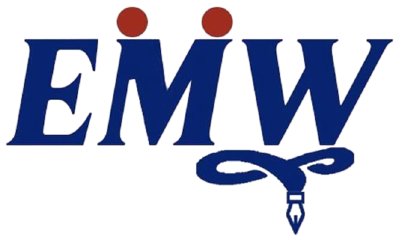“Mediation is a serious business, how can you, even in the wildest of your imagination, think of humour in it”, said one of my friends while we were discussing some nuances of Mediation. I replied, “The only reason for the humour to be there in mediation is that it’s serious business!”
Seriousness and humour are not the antithesis of each other—rather they complement each other. When one laughs, the lungs supply more oxygen to the body and oxygen is the food of the brain—the instrument with which (we think that) we think. Humor is, in fact, an exercise that relaxes the nerves and a relaxed mind thinks better. So, anyone who thinks that there is no room for humour in the mediation is quite likely to change his mind by the time he reaches the end of this write-up.
In one community mediation before me, the husband and wife had been negotiating over the parting package. The wife proposed her charter of demands—a three-bedroom flat, a car, and a hefty sum of cash. It was highly optimistic considering the husband’s not so-brilliant financials. In any routine mediation, this could have made the roofs fly apart and the husband could have been furious like anything. In stark contrast, subtly, the husband gave the counter offer of a bungalow, a chauffeur driven car, and almost double the cash amount. The wife was taken aback and asked the husband if he was joking. The husband, in a composed manner, replied that she had started it. This made everybody laugh. The tension got dissipated and the mediation proceeded successfully.
Another instance is equally interesting but it requires know-how about a tradition mostly prevalent in the Northern part India. In this part of the country people usually get together on the night over the weekend for a prayer meeting where they sing hymns in praise of the mother goddess Durga. The head devotee time and again implores the congregation to hail mother goddess by his refrain “awaz nahin aayi” (he could not hear). The group of devotees responds by saying “jai mata dee” (Hail to the mother goddess). Due to the repeated use of the phrase “awaz nahin aayi” and the response in the above manner it has become so embedded in the psychology of people that hearing the phrase “awaz nahin aayi” usually invites a spontaneous and impulsive response of “jai mata dee.”
The mediation before me was between two friends where one had lent some money to another and there were issues over the repayment. One of the friends was a little hard of hearing. While they were discussing the matter one said something, which the other one, being hard of hearing, could not catch. So, he said, “awaz nahin aayi.” The other one instinctively replied, “Jai Mata dee”. No one could hold his laugher despite the best of the efforts. This, however, melted the hard feelings, and the duo reunited as friends. One could discern their monetary dispute evaporating in thin air.
Mediation is continuing education. Training, refresher, and awareness programs are organized periodically. I had an opportunity to be a Resource Person in many such events. The subject of discussion, in one such program, had been Section 89 of the Code of Civil Procedure and the five ADR methods (Conciliation, Mediation, Arbitration, Judicial Settlement, and Lok Adalat) it had to offer.
One of the participants was harboring some doubts about the solutions offered by Section 89 and because of his frequent questions, the subject was not making headway. So, I decided to dispel his doubts by sharing an anecdote. It goes like this—
A patient, with complaints of cough, cold and fever etc., visited the doctor in a government dispensary. The doctor prescribed him a concoction/mixture. Handing over the prescription to the patient the doctor advised him to take the mixture from the Dispenser. When the patient handed over the prescription to the Dispenser, he without looking at the prescription handed over a bottle of a certain mixture to him. The patient requested the Dispenser to read the name of the mixture which the doctor had prescribed. The Dispenser casually replied, “Don’t worry, we have only one mixture.”
After sharing this anecdote, I told the participant that this had been the same situation with courts before Section 89 came into being in its new avatar by way of amendments to the Code of Civil Procedure effective 1st July 2002. Adjudication was the one and only one solution for any case. Now the Dispensary had five more mixtures. This sent the laughter waves across the conference hall which was too difficult to harness.
While discussing the subject of negotiations during mediation trainings, I often share one anecdote, which goes to show that many times there is much more than what is made to meet the eyes.
There was a farmer having a ranch near the railway lines. One of his bulls went missing and he brought a suit for compensation against the Railways. Soon the matter landed in mediation. The railway counsel had grave apprehension that if the matter went to trial the verdict might go against his client as the facts and circumstances were against it. The railway line was unguarded and unfenced. Though the dead bull could not be found, some blood had been detected on the tracks and it was suspected that the dead body might have been dragged away with the wheels of the train or devoured by the predators. In the settlement talks, the counsel for the railway negotiated very hard and achieved a settlement for his client at a very low price. When the settlement had been reduced into writing and the parties appended their signatures, the railway counsel could no longer hold his euphoria and stated to the plaintiff, the owner of the ranch, that it was indeed a very difficult case for trial as the negligence on the part of the railway was writ large and all the circumstantial evidence was against it. As such, in all likelihood, the suit would have been decreed for the full sum with interest and costs. He summed up by saying that he had achieved the settlement at a very low price and boasted to be the proud winner talking high of his negotiation skills. The plaintiff said that in fact it was he who had got the best deal in the matter. “You know, just today morning, that darn bull had come back home”, said the plaintiff.
In negotiations, no one ever knows who will have the last laugh!
A very interesting story of mediation has been shared by one of my fellow mediator. It was a matrimonial dispute and after talking to the parties for quite long in the joint session, the Mediator decided to break out into a single session to figure out the root cause of the problem. During the joint session, it had been revealed that there had been constant bickering between the parties. In the single session, the husband labeled the issues between them and pointed out one of the issues as ‘major religious differences’. When my mediator friend asked him to explain what were the religious differences between them, the man replied, “Well, she thinks that she is God…I don’t.”
The counsel representing a party in mediation had a penchant for speaking in English. He had spent a great many years in law practice. He was blissfully ignorant that he used to pronounce the word ’embarrass’ in the wrong way. In his peculiar way, he used to pronounce the word ’embarrass’ as ’embrace’. In the course of mediation proceedings, after washing some dirty linen in the joint session, he was apologetic and asked me,
“I hope I did not embrace (embarrass) you.” While he kept on repeating this sentence, my mind ventured into the situations as to what could have happened, had he uttered these words in front of a female mediator, or for that matter before a lady judge. The hilarious situations that my mind had imagined created a burst of laughter inside me. No longer able to contain myself, I excused myself from the mediation for a while and went to the washroom and had a heartful of laughter. Of course, I have said my prayers for him then, and now too before penning down this narrative.
There is no dearth of funny moments that happen day in and day out in mediation. They occur like a thundering flash and just fleet out of one’s mind at the same speed. One may try very hard to recall them, but they just do not come back. Sometimes, they are found down the memory lane. So much for those not so-forgotten moments, which my pen with its limited potential is unable to weave in words to convey the intensity of the moment. It would be my endeavor to revisit this Column to share those rib- tickling moments, as and when the heavenly powers bless me to scribe them on paper.
Many of my Mediator friends have shared the same platform with me on the point that humour has been a very good technique to break the impasse or deadlock and open up the channels of communication. It is no wonder that all of us, at one point of time or the other, have often used it with profit. Nevertheless, the caveat is to use it with utmost care as many times it may hurt a party who may think that the humour is at his or her expense. This may tend to shake the confidence of the party or compromise the neutrality of a Mediator. Thus, the proverbial ‘laxman rekha’ is to be surreptitiously observed.
At the cost of repetition, I cannot resist saying that humour is all pervasive.

About Author
Mr. Man Mohan Sharma
District Judge (Commercial Courts) Tis Hazari Courts, Delhi. India






